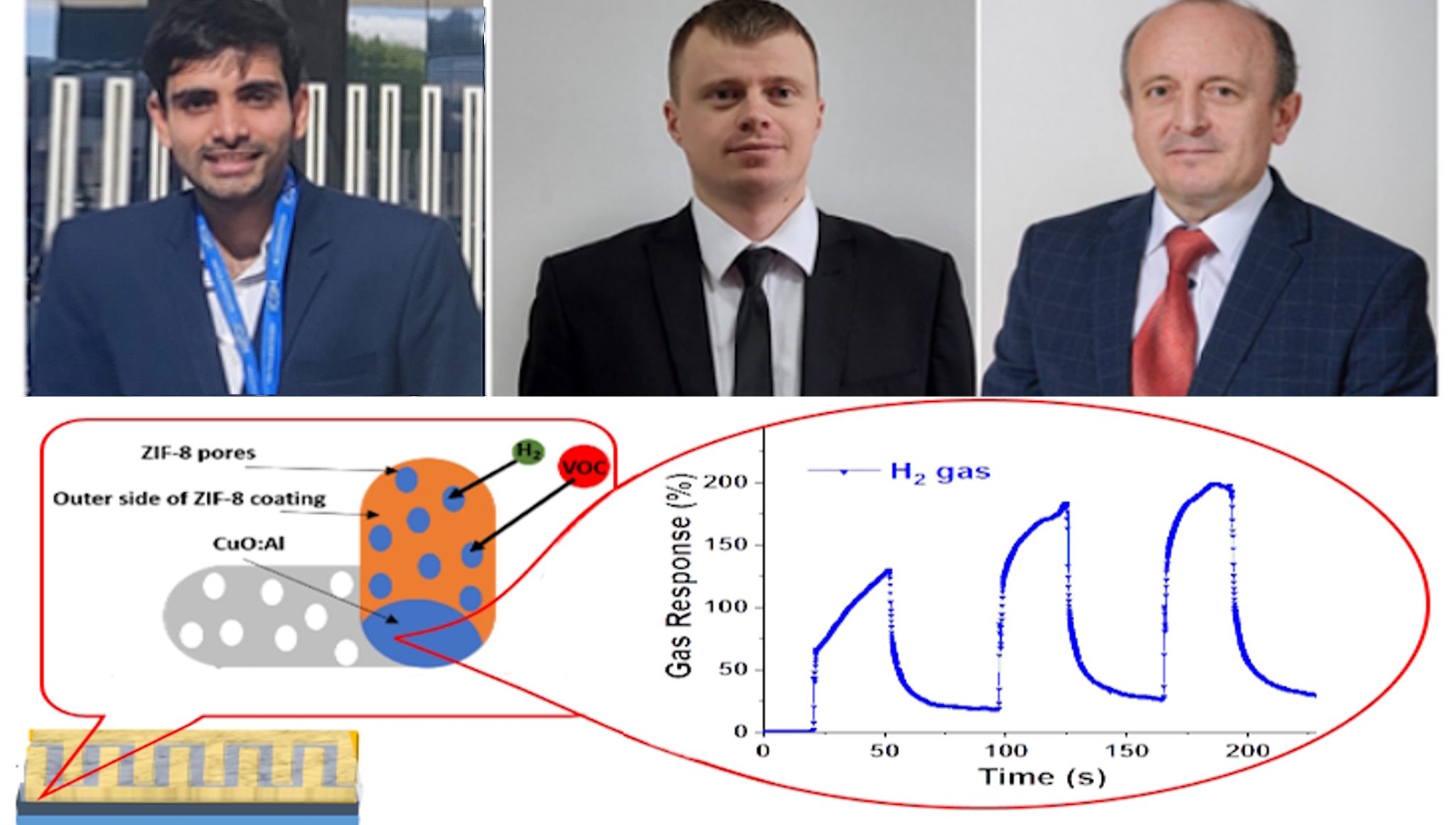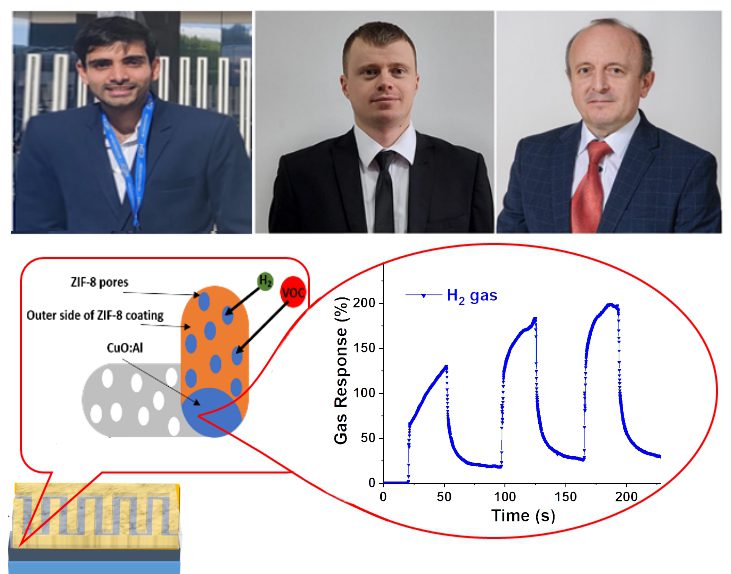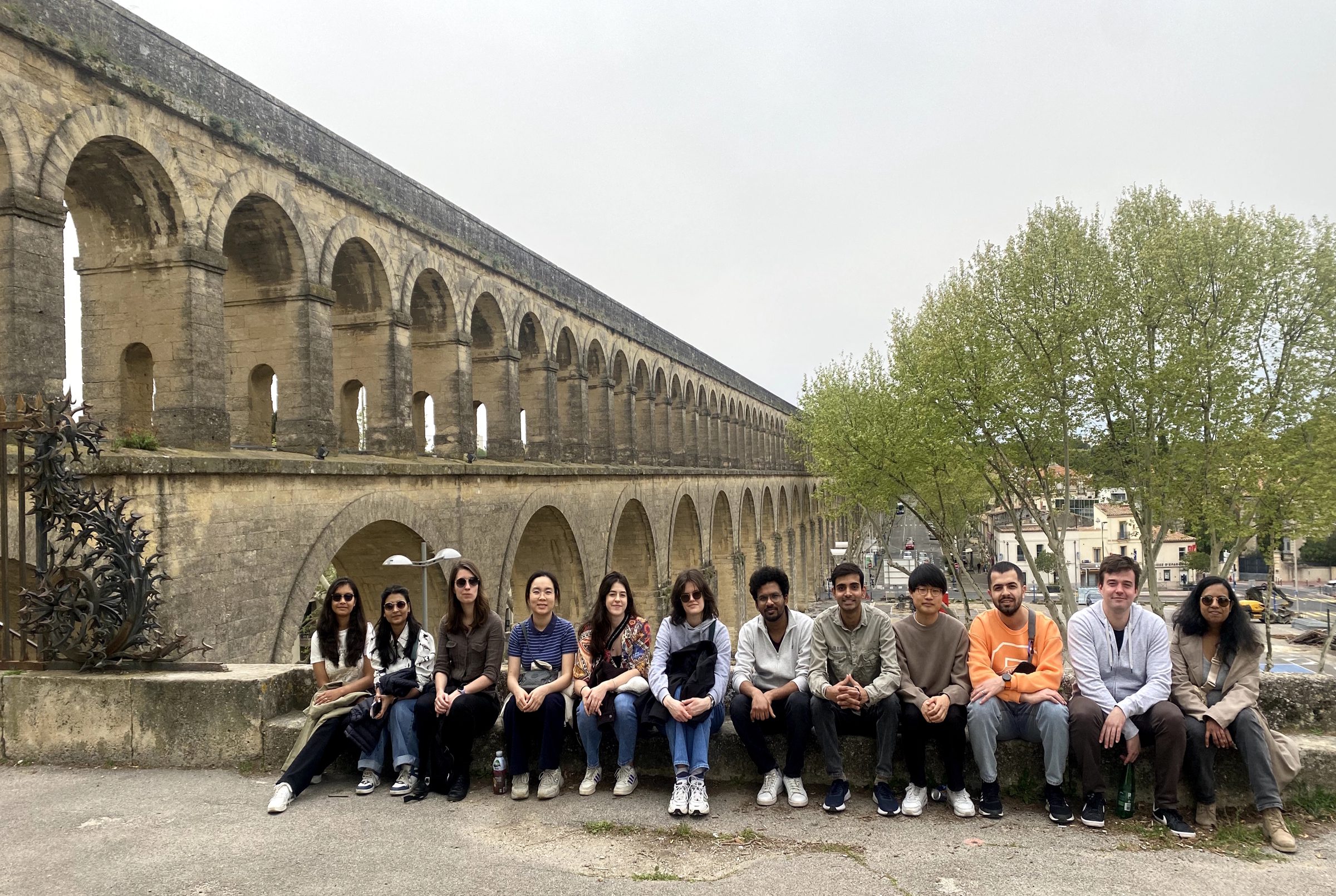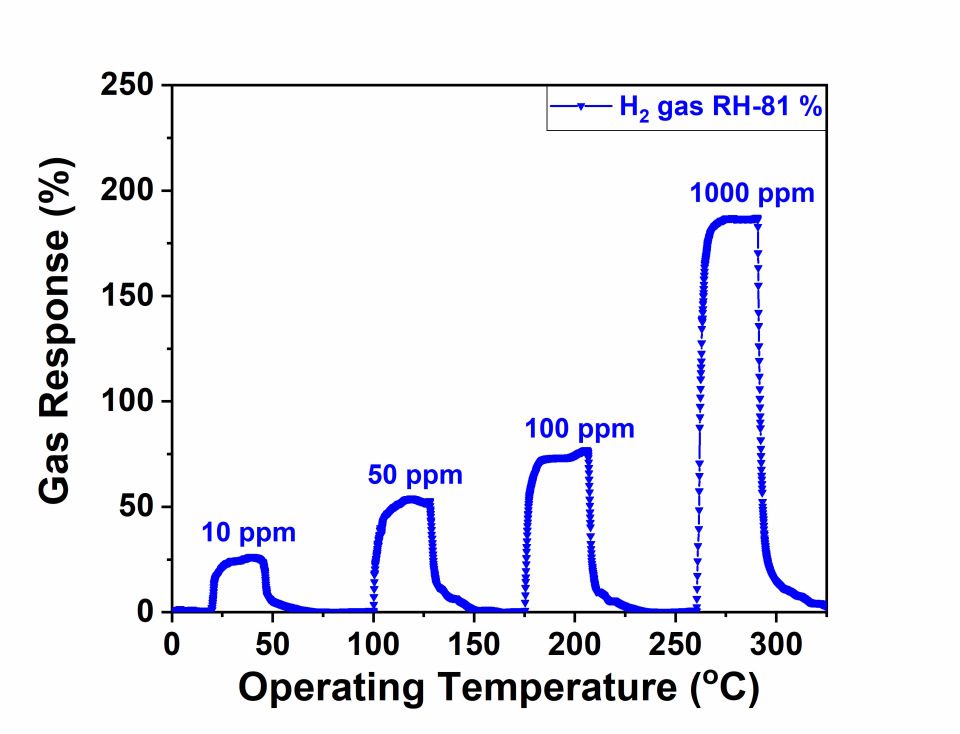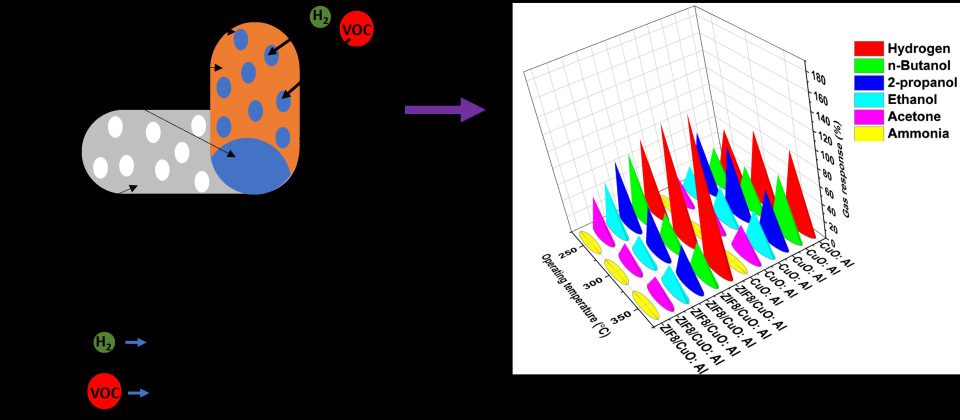The Technical University of Moldova has achieved a remarkable scientific milestone with the publication of a landmark paper in the prestigious journal Materials Chemistry Frontiers (RSC, United Kingdom), which holds an Impact Factor of 6.4 and is ranked Q1 in the fields of Materials Science, Materials Chemistry, and Multidisciplinary Chemistry. This notable scientific contribution, carried out in collaboration with world-renowned academic institutions, positions UTM at the forefront of a cutting-edge research area recently honored with the 2025 Nobel Prize in Chemistry for foundational work in Metal-Organic Frameworks (MOFs).
The paper, titled “Humidity-tolerant selective sensing of hydrogen and n-butanol using ZIF-8 coated CuO:Al film,” explores pioneering developments in hybrid sensor technology. The research team was led by Professor Dr. Habil. Oleg Lupan, Director of the Center for Nanotechnologies and Nanosensors and Head of the Department of Microelectronics and Biomedical Engineering, alongside Associate Professor Dr. Nicolae Magariu and doctoral student Rajat Nagpal. The study was conducted in partnership with researchers from the University of Kiel (Germany), KU Leuven (Belgium), and the University of Central Florida (USA)—all internationally recognized leaders in advanced materials research.
The paper reports, for the first time, the creation of a time-stable hybrid sensor capable of detecting hydrogen and n-butanol molecules at various concentrations and humidity levels. It is based on copper oxide doped with aluminum impurities (CuO:Al) and metal-organic nanostructures of the ZIF-8 (Zeolitic Imidazolate Framework) type.
ZIF-8 MOF materials are considered revolutionary and were recognized at the highest scientific level through the awarding of the 2025 Nobel Prize in Chemistry to Professors Susumu Kitagawa, Richard Robson, and Omar M. Yaghi. This award highlights “the enormous potential of metal-organic frameworks (MOFs), which offer unprecedented possibilities for creating custom materials with new functionalities.”
The Nobel press release states: “Metal–organic frameworks have enormous potential, bringing previously unforeseen opportunities for custom-made materials with new functions”—a direction in which UTM is actively engaged through original and innovative research.
Doctoral student Rajat Nagpal, originally from India, enthusiastically emphasized the relevance of this research in addressing global energy challenges:
“Hydrogen and n-butanol are increasingly being considered as clean energy carriers in the emerging era, but implementing them in practical applications requires reliable sensors to detect their low concentrations. Our research paves the way for developing more efficient organic-inorganic hybrid MOF/metal oxide sensors, capable of operating reliably in real-world environments and resistant to humidity—an essential step toward integrating them into clean energy infrastructure and monitoring industrial gases.”
This sensor directly contributes to sustainable energy development:
- Hydrogen is a clean energy source with zero carbon emissions and high calorific value.
- n-Butanol is a volatile organic compound (VOC) that, although harmful, is used as a blended fuel for advanced internal combustion engines, offering improved efficiency.
UTM’s approach uses cost-effective methods to produce these sensors, increasing their international appeal.
These high-performance results were also presented at the ICNBME-2025 International Conference, held in Chișinău from October 7–10, 2025, where they were highlighted as one of the most notable achievements in the field of nanotechnologies.
The research was funded through the prestigious HORIZON Europe SENNET project (code 101072845), as well as partially through projects 020401 and 020404, conducted in partnership between the Ministry of Education and Research (MEC), the National Agency for Research and Development (ANCD), and UTM, confirming the university’s full integration into Europe’s top scientific agenda.
This exceptional accomplishment demonstrates UTM’s capacity to produce world-class science in a field that is redefining the boundaries of modern materials. At the same time, this scientific success serves as a catalyst for the educational process.
Faculty members from the Department of Microelectronics and Biomedical Engineering (MIB) within the Faculty of Computers, Informatics, and Microelectronics (FCIM) are directly transferring the knowledge and experience gained from these international collaborations to students across all three levels of study—Bachelor’s, Master’s, and Doctorate. Through its flagship programs—Applied Electronics (EA), Microelectronics and Nanotechnologies (MN), and Biomedical Engineering (IBM)—the MIB Department offers a modern academic environment focused on research and innovation, preparing a new generation of specialists in emerging technology fields.
This outstanding achievement serves as an inspirational call: motivated and curious young people eager to develop or research such state-of-the-art devices are encouraged to join the initiatives of the Center for Nanotechnologies and Nanosensors and the Department of Microelectronics and Biomedical Engineering at UTM, and to take part in the scientific discoveries that will shape the technological and energy future of the world.
Online references:

